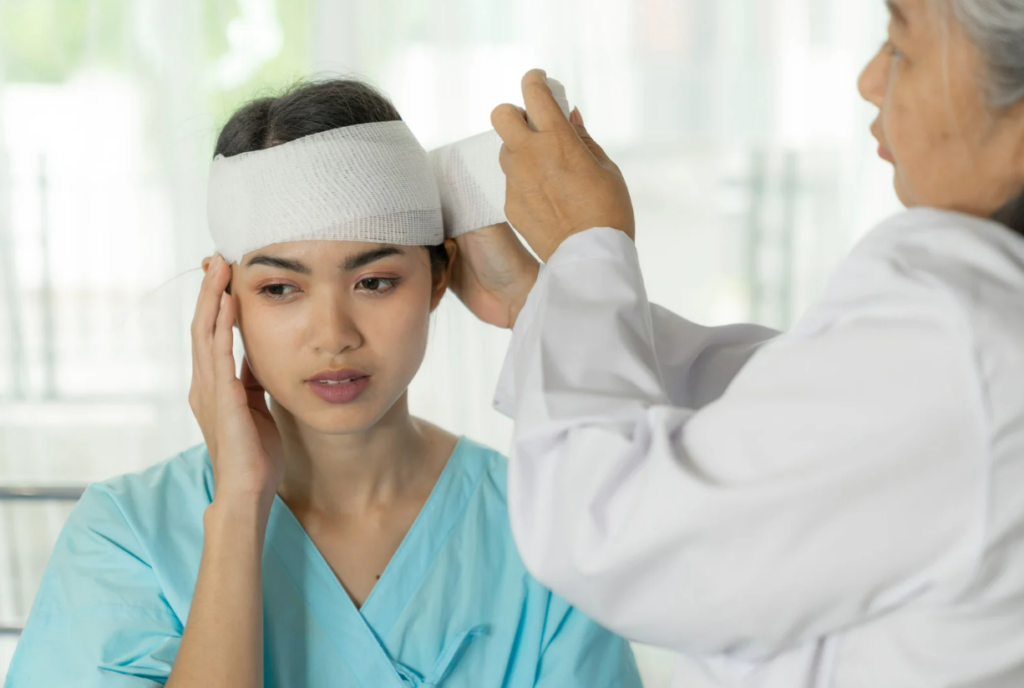Injuries, whether from sports, accidents, or even routine physical activities, can profoundly impact the body and mind. While bodily injuries are often visible and treated with clear medical steps, the psychological toll they take is not always as easy to identify or address.
Many individuals focus on the physical aspects of recovery but overlook the significant effects these injuries can have on their mental health. This gap can lead to longer recovery times, decreased quality of life, and even the possibility of developing chronic conditions like depression or anxiety.
Understanding the connection between mental health and physical injuries is essential for promoting a well-rounded recovery. Seeking prompt care, such as from an Orthopedic Urgent Care and Walk-in Clinic in Sevierville, Tennessee, can be a pivotal first step in addressing the physical and psychological challenges of injury.
The Psychological Toll of Injury
Injuries often lead to more than just physical limitations. They can also trigger a range of emotional and mental health issues. For example, an athlete who sustains a sports injury might experience frustration, sadness, or even anger. This emotional burden is common when a person’s lifestyle or identity is tied to physical abilities.
The sudden loss of mobility or independence can leave individuals feeling helpless and isolated, as they can no longer participate in activities they once enjoyed. Moreover, the uncertainty surrounding recovery timelines can foster anxiety, as individuals worry about whether they will fully heal or if their injuries will lead to long-term complications.
The connection between mental health and physical injury is not limited to athletes. Individuals who suffer from any injury that impairs their ability to perform everyday tasks—whether it’s lifting a heavy object, walking up stairs, or driving a car—can experience a shift in their emotional well-being. Pain, limited mobility, and the potential for a lengthy recovery period can create feelings of frustration, helplessness, and even a sense of loss.
In many cases, individuals might begin to withdraw socially, avoid physical activity, and become less engaged with their surroundings. This can set off a cycle of physical inactivity, which, in turn, worsens their mental health, contributing to depression, anxiety, or even post-traumatic stress disorder (PTSD).

The Importance of Comprehensive Care
Physical recovery from an injury should not be treated in isolation. The mental and emotional recovery process is equally vital in ensuring a person returns to their full potential. Comprehensive care, which includes psychological support along with physical treatment, can help individuals deal with the stress, anxiety, and emotional challenges that accompany an injury. One of the first steps in managing mental health following an injury is recognizing the psychological effects and taking them seriously.
Orthopedic care plays a significant role in the early stages of recovery. By addressing the physical symptoms, individuals gain peace of mind, knowing they receive proper treatment. However, it’s equally important to integrate mental health care into the process.
Cognitive behavioral therapy (CBT) or other forms of psychological counseling can help patients cope with their emotions, reframe their thoughts, and build healthier attitudes toward their injury and recovery. These strategies can make a profound difference in reducing anxiety and depression, thus improving a person’s overall well-being and healing process.
Incorporating both physical and psychological care can shorten recovery time and improve long-term outcomes. While physical healing is essential, without addressing mental health, individuals might struggle with setbacks such as chronic pain, low mood, or fear of re-injury.
This is where facilities like Orthopedic Urgent Care and Walk-in Clinic in Sevierville, Tennessee, can play a vital role. Seeking professional care early on ensures that both the body and mind are supported throughout the recovery journey, reducing the likelihood of long-term psychological struggles.
The Role of Support Systems
In addition to professional care, having a strong support system is crucial during the recovery process. Friends, family, and peers can provide emotional comfort, practical assistance, and reassurance.
Social support can serve as a buffer against the mental health challenges associated with physical injuries. A person who feels emotionally supported is less likely to experience feelings of isolation, which can further contribute to anxiety and depression.
Moreover, joining support groups with others who have experienced similar injuries can be incredibly beneficial. These groups offer a sense of belonging and understanding as participants share their struggles and coping strategies.
Support from others going through a similar recovery process can provide hope and motivation, especially when individuals feel discouraged by the slow pace of their physical healing.
Recovery is not just about fixing what is broken; it’s about healing the whole person. Addressing mental health is an essential component of this process, and physical healthcare providers need to be aware of the cognitive and emotional challenges their patients face. Recognizing that psychological and physical health are intertwined can lead to more effective treatment plans and better overall outcomes.

Final Words on Mental Health and Physical Injuries
The connection between mental health and physical injuries is undeniable, yet it is often underrecognized. Bodily injuries, though they are visible and can be treated with medical interventions, carry with them significant emotional and psychological consequences that require attention. The mental strain caused by pain, limited mobility, and recovery uncertainty can lead to depression, anxiety, and other mental health challenges.
Understanding this connection allows for a more comprehensive approach to recovery, including physical and psychological care. By addressing both aspects, individuals can experience a more complete recovery, both in body and mind.
If you or someone you know is struggling with the emotional aftermath of an injury, don’t hesitate to seek support. An Orthopedic Urgent Care and Walk-in Clinic in Sevierville, Tennessee, can be the first step in addressing the physical and mental challenges of recovery, ensuring a smoother healing process and a healthier future.


